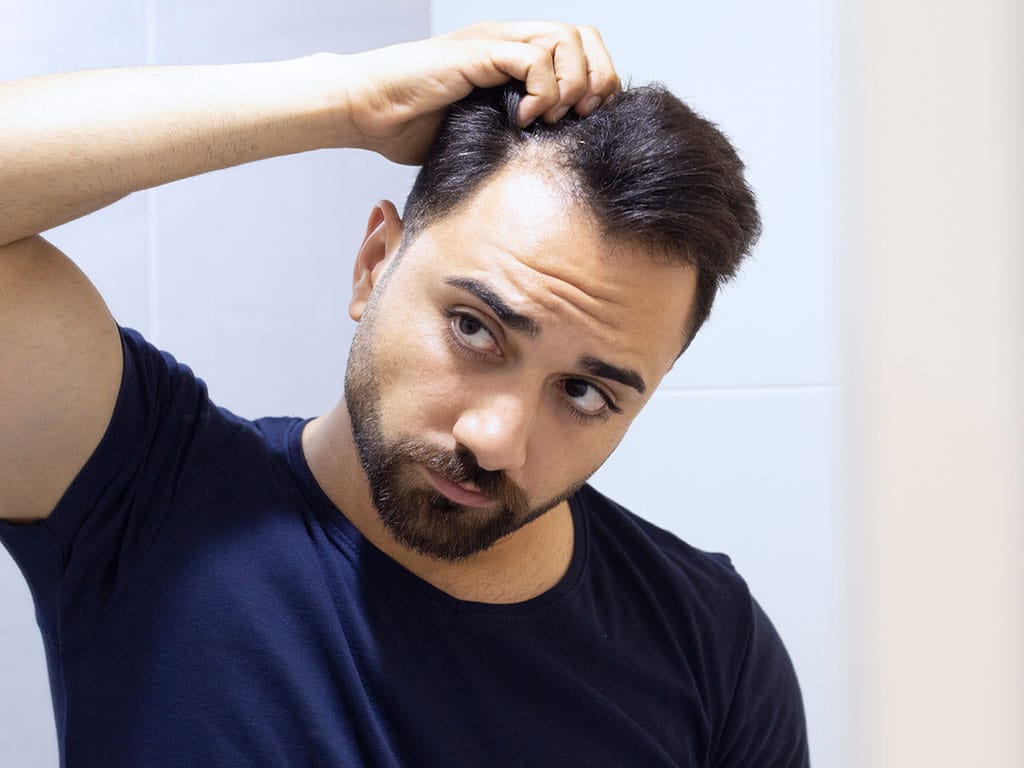
Everything you need to know about DHT: The role of dihydrotestosterone in hair loss
Dihydrotestosterone, abbreviated as DHT, is a hormone that plays a crucial role in the human body. Although it contributes to the development of masculine characteristics, it can also lead to hair loss in men and women. In this blog post, we’ll take a closer look at what DHT is, how it causes hair loss, and what you can do to deal with the effects.
What is DHT?
DHT is a hormone produced when the enzyme 5-alpha reductase converts testosterone. It occurs in both men and women, but plays a more prominent role in men. DHT is responsible for the development of male sexual characteristics, such as beard growth and a deeper voice.
How does DHT cause hair loss?
The problem with DHT occurs when it attaches to the receptors in the hair follicles on the scalp. This process can lead to a reduction in the hair growth cycle, causing the hair follicles to gradually shrink and weaken. The result is that the hair becomes thinner and can eventually fall out, causing hair loss. This phenomenon is known as androgenic alopecia or hereditary baldness, and it is common in men, but also in some women.
How can you deal with DHT-related hair loss?
There are several approaches to dealing with DHT-related hair loss:
- Medication: There are medications such as finasteride and dutasteride that can reduce the conversion of testosterone to DHT. However, these medications are available by prescription and should be used under the supervision of a doctor.
- Natural methods: Some people choose natural methods to regulate DHT levels, such as using dietary supplements containing saw palmetto, zinc, and omega-3 fatty acids. This approach can be complementary to medication.
- Hair transplant: For people who already suffer from hair loss, a hair transplant, such as the FUE method, can be an effective solution to restore natural hair growth.
- Hair care: Using DHT blocking shampoos and care products can help reduce damage to hair follicles.
- Stress management: Stress can increase DHT levels and contribute to hair loss. Managing stress with techniques such as meditation and exercise can help.
Understanding DHT’s role in hair loss is essential for those striving for healthier hair growth. Consulting a doctor or dermatologist is recommended to determine the most appropriate approach depending on individual needs and circumstances. With proper care and treatment, people can effectively manage DHT-related hair loss and enjoy a fuller head of hair.

